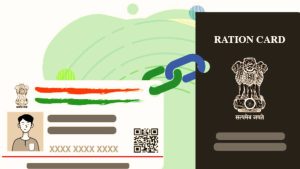![]()
In a transformative shift in India’s financial landscape, credit card transactions have taken the lead over debit card usage after the resounding success of the Unified Payments Interface (UPI). The Reserve Bank of India’s recent data has illuminated this substantial surge in credit card transactions, indicating a meaningful change in consumer behaviour and preferences. This article delves into the factors that have fueled this rise in credit card transactions and shed light on the dynamics that underlie this shift.
The Ascendance of Credit Cards
April of this year marked a significant milestone for credit card transactions in India, as they outpaced debit card usage by a remarkable margin. The data showcases a staggering 25 crore merchant card transactions in April, in contrast to the 22 crore transactions recorded last year. Notably, the total value of credit card transactions soared to ₹1.33 lakh crore, dwarfing the ₹53,000 crore attributed to debit card transactions. These transactions encompass purchases across diverse platforms, including e-commerce and physical retail outlets.
Factors Behind the Rise in Credit Card Usage
The meteoric rise in credit card transactions is underpinned by several pivotal factors composing a shifting narrative in Indian financial habits.
1. Consumer Acceptance and Adoption: The soaring numbers of credit card transactions reflect the escalating acceptance of this payment method among consumers. This acceptance spans online and offline merchants, signifying the maturation of the credit card ecosystem.
2. Enduring Appeal amid UPI’s Rise: Despite the advent of the Unified Payments Interface, the credit card ecosystem has exhibited an unyielding appeal. While UPI influenced a decline in debit card usage, credit cards have remained robust. Over the past year, credit card swipes experienced a noteworthy 20% surge, while debit card transactions encountered a contrasting decline of 31%. This trend highlights that consumers are embracing credit cards for their convenience and benefits.
3. Financial Management and Convenience: Credit cards offer consumers a 48-day interest-free period, which enables them to manage their finances more effectively. This period provides time to ensure sufficient liquid funds for daily expenses while transferring the spending responsibility to credit card issuers. This characteristic has positioned credit cards as tools for smarter financial management.
4. Online Preference and Protection: Users of credit cards tend to spend twice as much online as they do offline. This inclination can be attributed to credit cards’ enhanced security and protection during online transactions. The added layer of security and the potential for chargebacks make credit cards an attractive choice for online shoppers.
5. Co-branded Cards and Strategic Collaborations: The proliferation of co-branded credit cards in conjunction with major banks and consumer-centric apps has emerged as a strategic approach by Indian startups to diversify revenue streams. These partnerships leverage the popularity of established brands and offer compelling incentives, such as discounts and rewards, fostering customer loyalty and engagement.
Balancing Act and Caution
While the rise in credit card transactions indicates a progressive transformation, it is imperative to maintain a balance between its advantages and responsible financial behaviour. As of March 2023, the outstanding credit card amounts have surged to ₹1.9 lakh crore, underscoring the potential hazards of overspending and accumulating high-interest debt. This underscores consumers’ need to exercise prudent financial habits to prevent pitfalls linked with excessive borrowing.
Benefits of Credit Card Payment
Credit card payments offer a range of benefits that make them a popular choice for consumers. Here are some key advantages of using credit cards for payments:
- Convenience: Credit cards provide a convenient way to make in-store and online purchases. They eliminate the need to carry large amounts of cash and offer a quick, hassle-free payment process.
- Security: Credit cards have built-in security features like fraud protection and zero-liability policies. If your card is lost or stolen, you can report it and usually not be held responsible for unauthorized transactions.
- Build Credit History: Responsible credit card use can help you establish and improve your credit history. Timely payments and a low credit utilization ratio can boost your credit score, which is important for obtaining favourable terms on loans and mortgages.
- Emergency Funds: Credit cards can be a backup source of funds in unexpected emergencies. They provide a financial cushion when you need to cover urgent expenses like medical bills or car repairs.
- Rewards and Perks: Many credit cards offer rewards programs, cashback, travel miles, or purchase discounts. Using your card strategically, you can earn benefits that contribute to your savings or provide value through travel and other perks.
- Online Shopping: Credit cards are essential for online shopping, as they offer a secure transaction. They also often come with additional layers of security, like one-time passwords or verification codes for added protection.
- Record Keeping: Credit card statements clearly record your transactions, making tracking your spending and budget easier. This can be particularly useful for managing your finances and identifying areas where you can cut back.
- Flexible Repayment Options: While it’s important to pay your credit card bills on time and in full to avoid interest charges, credit cards offer the flexibility to make minimum payments when necessary. This can be helpful if you’re facing temporary financial constraints.
- Travel Benefits: Many credit cards offer travel-related perks such as travel insurance, airport lounge access, and no foreign transaction fees. These features can enhance your travel experience and save you money while abroad.
- Consumer Protection: Credit cards often provide additional consumer protection on purchases. For example, if you buy a faulty product or a service is not delivered as promised, you can dispute the charge with the credit card company and potentially receive a refund.
- Auto-Pay and Bill Management: You can set up auto-pay for recurring bills using your credit card, ensuring that your payments are made on time without manual intervention.





